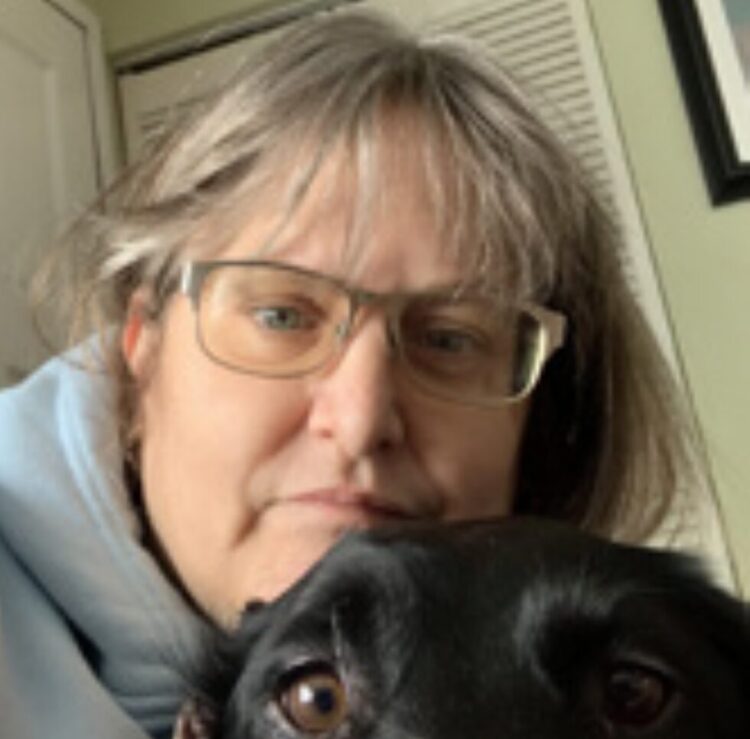Trial by Fire
7 MINS to read

My experience in advocacy was trial by fire. I was diagnosed with metastatic breast cancer (MBC) in 2017 and was the first in Canada to be prescribed a novel and effective targeted chemotherapy. However, it was only available with private funding. Wait. What? I thought Canada had universal health care? My first treatment was covered by my extended health benefits. However, days before my next infusion, they called and told me they would no longer cover it. I would have to come up with around $14,000 every three weeks. I could not afford it. I started making calls to find out what was holding it up. I learned that while drugs might be available and approved by Health Canada, this did not mean it was funded. Funding was a provincial decision. It could take months or even a year before the decision was made.
That was just not acceptable to me, so I proceeded with a letter-writing campaign to my extended health provider, BC Medical Services Plan, the BC Cancer Agency, and my employer. All replied that there was nothing they could do until the province decided. I also contacted my union who explored the option of legal action. In the meantime, my friends watched me struggle financially and held a successful fundraiser for me. The local newspaper interviewed me and wrote a story emphasizing how unfair the situation was. I heard this article was sent to the powers that be, and a few months later, the drug was approved. Who knows if I had anything to do with speeding up the process, but at least the drug was approved for me and all the people in British Columbia that needed it.
In my campaign for funding, I contacted a couple of cancer nongovernmental organizations (NGOs). One told me there was nothing they could do and the other invited me and paid for an advocacy workshop in Nova Scotia, where I met others with metastatic breast cancer. I also joined several support and advocacy groups on social media. I made so many meaningful relationships but, sadly, most friends died because the outcomes were still poor for MBC. There was a general feeling of urgency because not much was known about metastatic breast cancer, and we needed to get our stories out there. In addition to blogging about my cancer, I have written stories and made videos for several NGOs in Canada and the US over the years.
The drug funding issue was eating away at me. Through my contacts, I became a founding member of a small advocacy group. It was there I learned of the Canadian Agency for Drugs and Technology inHealth(CADTH) and the specific committee assigned to cancer drugs — pCODR (pan-Canadian Oncology Review). The process was that a drug would be submitted to pCODR, a committee made up of a variety of experts, including medical and economic professionals and patient representatives. pCODR would evaluate efficacy and value through a health and technology assessment (HTA), and they would then make recommendations to the provinces and territories around funding a drug. This process grabbed my attention. I attended a CADTH conference as a patient advocate and learned about the process of HTA. I even participated in a mock pCODR committee. I made some important advocacy connections at the conference.While I advocated with my peers for timely and equitable access to new cancer treatments, I went a step further and voiced my opinions about reasonable drugpricing. Interest in the issue of access to new treatments led me to volunteer with the new Drug Funding Sustainability Initiative (DFSI) led by the cancer agenciesacross Canada. From there, I was recruited as one of the first Patient Partners in Patient Engagement at BC Cancer.
A few years into living with MBC, I decided to complete my masters degree in rehabilitation science. I was an occupational therapist before cancer and desperately missed working. The program was online, and even if I was unwell, I was able to participate from my bed. My major project was a qualitative study about patient engagement in people with metastatic cancer. It was both exciting and challenging to undertake as both a researcher and a peer. I was even able to publish in a peer-reviewed journal. I see my project as an act of advocacy.
I always had quite severe side effects, but in 2017, I suddenly experienced severe dysautonomia caused by my treatment. I became limited to bed, wheelchair and walker and had to eat from a blender for over a year. As a result, I quit one of two of my maintenance treatments and spent over four years rehabilitating. I tried and failed to engage the drug company in reporting and managing the side effects and in 2022 the symptoms started to rear up again. I chose to quit all treatment. I have been lucky to remain with no evidence of disease despite suspending treatment for two years now — something I should be celebrating. The problem is that I haven’t been feeling celebratory for years.
In 2020, right at the start of Covid19, I started to feel energetic, creative, got lost in my projects, and started to think I was the smartest person in the world. This gave way to having racing thoughts, an internal monologue screaming at me and severe agitation. I went to a doctor, emergency room, and eventually saw a psychiatrist, and I was treated for bipolar disorder. Unfortunately, what followed was years of treatment- resistant depression. I had plenty of experience with depression but this was so much worse. I would lie in bed for days just doomscrolling, waiting to sleep to escape feeling so awful. I tried different medications, medically supervised ketamine, mindfulness meditation, behavioral therapies, art therapy, counseling, exercise, diet, cold showers — you name it. I have been plodding along making small changes with small improvements, but I’m still struggling. I started volunteering for the food bank and as a village host. It has honestly been more difficult to deal with bipolar disorder than any of my cancer experiences. I have felt much less supported and struggled to find useful resources. I feel people just disappeared from my life. Despite more lip service about mental health, long-term, and in-person services are almost nonexistent and stigma for serious mental illness is weighty.
I’m living at the intersection of cancer and mental illness. When I look back at what I’ve done and what I’ve been through, I feel proud but also exhausted. Advocacy can be rewarding — giving a sense of purpose. But it’s also very difficult to get your voice heard. Despite feeling burnt out at present, I would like to think that I will return to some sort of advocacy when I feel better. — Patricia Stoop
Patricia Stoop • Involuntarily retired occupational therapist. Diagnosed at 39. Stage IV de novo, HER2+. Patricia lives in Whistler, British Columbia, where she lives with her husband and two dogs. She was diagnosed in 2011 and had been NED since 2014. She completed her Masters in Rehab Science in 2021 but still doesn’t know what she wants to be when she grows up. She wishes she could join her 23-year-old son or 21-year-old daughter at university. Patricia was rudely sidelined by severe side effects in 2017 then treatment resistant bipolar depression since 2020. While she’s working hard at recovery from the latter, she volunteers at the food bank and as a village host year round.

Rethink is honoured to be the guest editor for Wildfire Magazine’s annual Metastatic Breast Cancer issue focusing on Advocacy.
This piece has been republished with permission from WILDFIRE Magazine, the “MBC Advocacy” issue issue, published originally October 19, 2024. More information available at wildfirecommunity.org
WILDFIRE Magazine is the only magazine for young women survivors and fighters of breast cancer under 45 years old. Headquartered in Santa Cruz, California, WILDFIRE is a beautiful, story-based bi-monthly magazine published on different themes relevant to young women survivors, from stage 0 to stage IV. Beautiful and ad-free! Visit wildfirecommunity.org for more info.